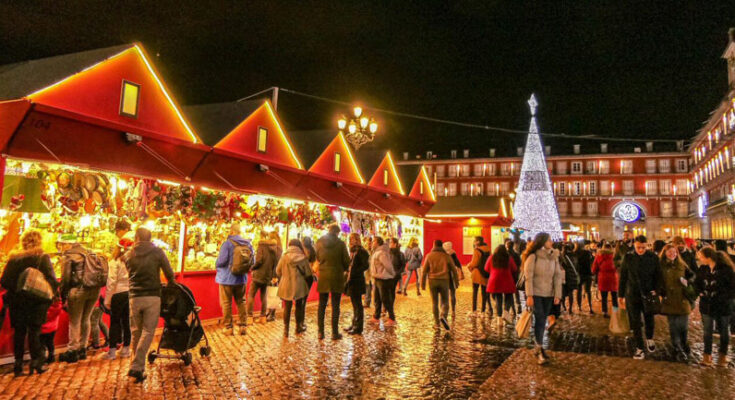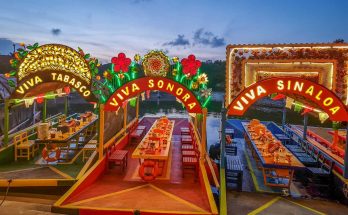In Spain as in the whole world we celebrate Christmas in many ways and customs of each country. Here in Spain from December 22 to January 6, is the time when families try to be more united and of course, it is a bit similar to the celebration of Christmas in Mexico and today in Traveling By we will talk about it.
Table of Contents
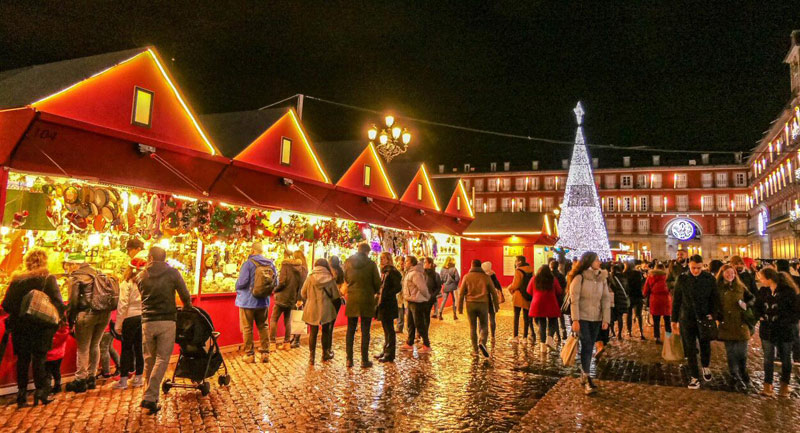
Christmas in Spain
It is a time of sharing a lot among friends and family, giving gifts to each other, eating and above all sharing and enjoying these dates. It is a time that mixes pagan traditions with religious traditions.
Christmas in Spain is a time to get together with family and friends, to give a Christmas lottery ticket, to eat copiously with the family, to celebrate the company’s lunch/dinner.
We know that December 25 is the day of excellence, the day of Christmas, which is the day when the baby Jesus is born. Unlike December 31, which is the day where we say goodbye to the old year and welcome the new year, and January 6, which is the day of the Three Kings, who were the ones who saw the baby Jesus being born.
Christmas in Spain is celebrated with the arrival of the National Lottery day which is December 22nd, for many people those days are the beginning of Christmas. Normally it coincides with the closing of Schools, Institutes, Universities… Although some say that Christmas arrives with the announcement of the Corte Ingles or the Christmas Lottery.
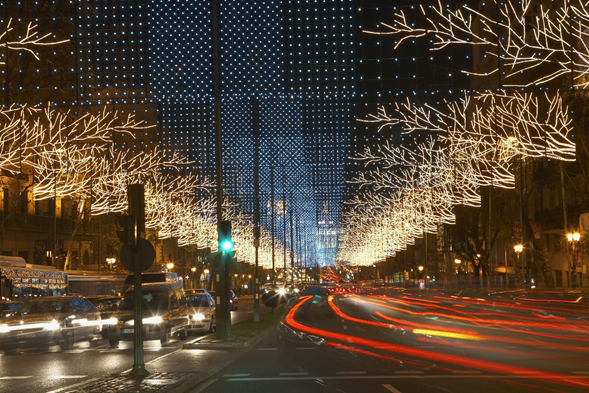
The truth is that every time Christmas seems to come earlier, being November already a month where you see the streets decorated (full of decorations and lights), typical Christmas markets (fairs of typical Christmas products, such as: articles for the Belem, Christmas sweets, decorations for the Christmas tree …) also the stores are preparing for the arrival of people earlier and earlier (Black Friday offers), many more ads on TV for perfumes, colognes, chocolates and toys.
In Spain, the Santa Claus theme has also become much more popular, thanks to the fact that the little ones at home have more time to play with the gifts he has brought them than on the day of the Three Kings. In Spain there is also a dinner called the company dinner, it is usually held weeks before Christmas so as not to have so many days of lunches and dinners.
Origin of Christmas in Spain
Christmas in Spain dates back to the 6th century, from several generations ago. The Iberian peoples already had their tradition of celebrating the winter solstice which was between the 20th and 23rd of December, this was done in order to provide themselves with enough food and drink for the hardest time of the year that was coming and they had to face.
The emperor of Byzantium, in the year 529 Justinian, dictated that December 25 would be the day they would use to celebrate the birth of Jesus throughout the Roman Empire. This day replaced the pagan rites of the agricultural cycle and was marked for all of Spain in the Middle Ages.
Now Christmas in Spain is a very happy time and undoubtedly the happiest time of the year. They usually unite the family with the assembly of the Christmas tree and in many other homes also the nativity scene of Christmas, all this prior to the drawing of the Christmas jackpot.
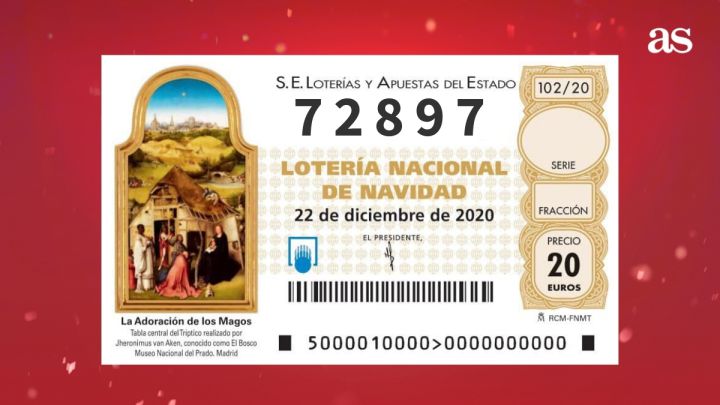
Spanish Christmas customs
There are not the same traditions and ways of celebrating Christmas all over Spain. In Catalonia, Bon Nadal, Caga tió, Caganer i els panellets. In Galicia they say ‘Bo Nadal’ and in the Basque country ‘Eguberri on’.
These regions also have other customs that I don’t know at the moment but that someday I would like to be able to live.
In Spain they also celebrate the company dinner, which is usually a few weeks before Christmas so as not to have so many days of copious lunches and dinners.
Since when did Santa Claus began to be celebrated?
In Spain, as in almost every country in the world, the day of the three kings is celebrated on January 6th. Santa Claus was just a figure that did not mean anything, it was starting the 90’s where Santa Claus began to get into our lives in a more meaningful way.
This image has become more and more established in the market, becoming a festive and decorative element. This has been used in the market to attract more customers and increase their sales, making them believe that the Christmas spirit is growing.
And children have enjoyed Santa Claus more than the Three Kings. Thanks to Santa Claus’ gifts, they can play 12 days more than they did with the Three Wise Men.
The custom of eating 12 grapes after the quarters are played at 24:00 on December 31st of each year to usher in the New Year. New Year’s Eve.
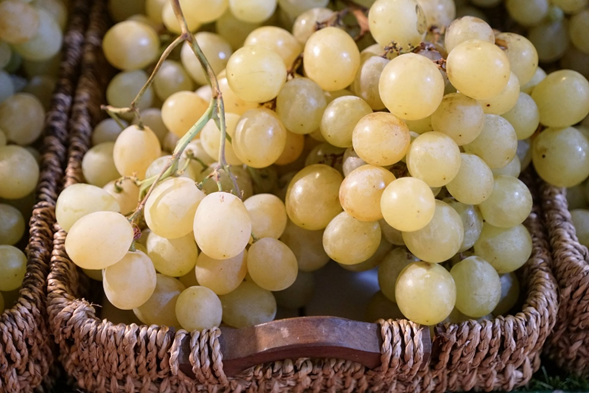
Traditionally in Spain the Three Wise Men have always been celebrated on January 6th; with its royal parade of the Magi (among the most famous in the world are the parades of Alcoy and Madrid). What happens is that with Santa Claus gifts children can enjoy up to 12 more days to play with gifts.
Christmas Eve, Christmas Day, New Year’s Eve and Epiphany (January 6) are usually days of family celebration, while New Year’s Eve, which indicates the farewell of the year, is usually more festive with friends and usually on January 1 is celebrated with a good stew that comes in handy for the hangover of the New Year’s Eve party.
After New Year’s Day everything seems to be back on track, we only need to prepare the presents for Epiphany if we don’t have them yet; although if you have been bad that year, the Three Kings will most likely give you coal.
The most famous Three Wise Men parades in Spain are the one in Madrid and the one in Alcoy.
Conclusion
As you can see, Christmas in Spain is somewhat similar in traditions and customs to the way it is celebrated in Mexico and other countries around the world. Of course, they tend to vary a little in some things and forms, but the goal is always the same: A moment of love, peace and tranquility.

